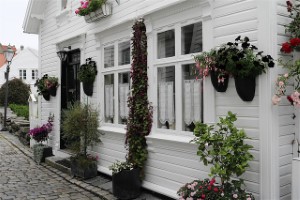
Creating an extensive guide on what to do with undeveloped land in Framingham, Massachusetts, involves exploring various possibilities ranging from residential and commercial development to conservation and community projects. Given Framingham’s unique characteristics, including its location within the MetroWest region of Massachusetts, its diverse population, and its mix of urban, suburban, and rural areas, the potential uses of undeveloped land are vast and varied. This article will cover several key areas: understanding local zoning laws, considering residential and commercial development, exploring agricultural uses, investing in recreational and community spaces, and examining conservation efforts.
1. Understanding Local Zoning Laws
Before planning any development or project on undeveloped land in Framingham, it’s crucial to understand the local zoning laws. The City of Framingham has specific zoning bylaws that dictate how land can be used, which includes residential, commercial, industrial, and mixed-use designations. These laws also regulate building sizes, lot coverage, and the density of developments. Familiarizing yourself with these laws and possibly consulting with the Framingham Planning and Zoning Board can provide a clear framework for what is possible on your land.
2. Residential Development
With the growing demand for housing in Massachusetts, residential development is a significant option for undeveloped land. This can range from single-family homes to multi-unit apartments and condominiums, depending on the zoning regulations and market demand. Affordable housing developments are also greatly needed and can be pursued in partnership with local and state housing authorities to meet community needs and receive potential subsidies or tax incentives.
3. Commercial Development
Commercial development is another avenue, especially in areas close to Framingham’s major roads and commercial centers. This could include retail spaces, office buildings, or mixed-use developments that combine commercial and residential uses. Given the strategic location of Framingham as a hub in the MetroWest area, commercial developments can cater to a wide regional audience and drive economic growth.
4. Agricultural Uses
For undeveloped land in more rural parts of Framingham, agricultural uses can be an attractive option. This could include starting a farm, orchard, vineyard, or community garden. Agriculture not only serves the local community by providing fresh produce but also helps preserve green spaces and supports sustainability initiatives. There might be state and federal grants available for agricultural projects, especially those focusing on organic farming or conservation practices.
5. Recreational and Community Spaces
Creating recreational and community spaces is essential for enhancing the quality of life in any area. This could include parks, playgrounds, sports facilities, walking trails, or community centers. Such developments can serve as vital communal spaces for residents, promoting health, wellness, and social interaction. Partnerships with the local government, non-profit organizations, and community groups can help in the planning and funding of these projects.
6. Conservation Efforts
Lastly, conservation is a crucial consideration for undeveloped land, especially in areas with significant natural beauty or ecological value. Working with conservation organizations, land trusts, or the local government to preserve land can protect habitats, maintain biodiversity, and ensure open spaces for future generations. Conservation efforts can also include sustainable development practices, such as green building designs and renewable energy projects, that minimize environmental impact.
Conclusion
In conclusion, the opportunities for utilizing undeveloped land in Framingham, MA, are extensive and varied, catering to a wide range of interests and objectives. From residential and commercial developments to agricultural ventures, recreational spaces, and conservation efforts, there is a path for every vision. For Custom Realty Solutions, LLC, understanding local zoning laws and engaging with the community and stakeholders will be key in navigating the best use of undeveloped land. By considering the needs of the community and the environmental impact of potential projects, Custom Realty Solutions, LLC can make strategic decisions that not only contribute to its growth but also enhance the overall quality of life in Framingham. Whether the aim is to develop or to preserve, Custom Realty Solutions, LLC has the potential to create lasting positive impacts on the local landscape, economy, and community. As Framingham continues to grow and evolve, the thoughtful use of undeveloped land by Custom Realty Solutions, LLC and others will play a crucial role in shaping a sustainable and vibrant future for the city.

